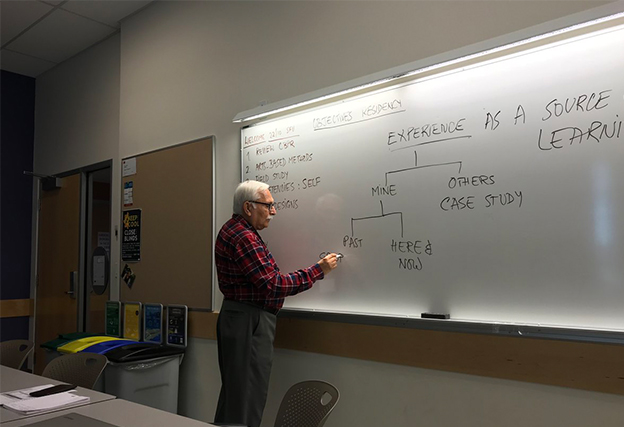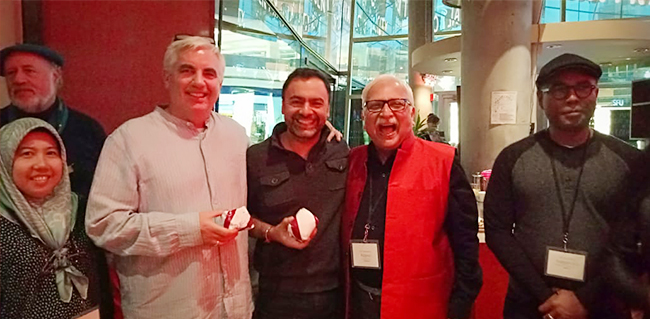 “We would like to embed engagement in our university’s DNA”, said Prof Peter Keller, Provost & Vice-President Academic of Simon Fraser University (SFU) last week. He was interacting with mentors of the UNESCO Chair’s Knowledge for Change (K4C) initiative. Coming from Canada, India and Malaysia, the K4C mentors were amazed to see SFU’s Surrey campus located inside Central City Mall.
“We would like to embed engagement in our university’s DNA”, said Prof Peter Keller, Provost & Vice-President Academic of Simon Fraser University (SFU) last week. He was interacting with mentors of the UNESCO Chair’s Knowledge for Change (K4C) initiative. Coming from Canada, India and Malaysia, the K4C mentors were amazed to see SFU’s Surrey campus located inside Central City Mall.
SFU Surrey campus is not merely engaging with community, it also contributes to building the local community. Surrey is the fastest growing city in Canada with a large diversity of immigrants arriving everyday. In partnership with City Hall, the university undertook a research on homelessness. This research is a classic example of co-construction of knowledge. Researchers included city officials, SFU students and local homeless youth, trained and paid to be co-researchers. Describing the positive result from this participatory research, Navinder Chima, Director of Community Programs and Partnerships at SFU, proudly showed us around the newly created facility for housing the homeless. The coordinator of this Outlook facility readily acknowledged the huge contribution made by SFU.
Prof Andrew Petter, President of SFU, began a Centre for Dialogue in the heart of Vancouver city some years ago. This facility co-convenes dialogues on topical issues like democracy, youth employment, climate change, etc. Stakeholders from government, business, community, civil society, media and academia participate in these dialogues aimed at generating new solutions for the city and the province of British Columbia in Canada. Students and faculty of SFU prepare for, document and report on these dialogues, integrated in their education. This is an example of SFU as an “anchor” institution in and for the community.

During our week at SFU Surrey campus, it was common to meet university students and community in the campus and the mall. We saw the university space being used for health and well-being one day, with cosmetic and health businesses and faculty working together to inform and educate. Another day, city and state police departments, faculty of forensic studies and students were informing and motivating new students and community youth. When asked to explain this phenomenon, Dr Stephen Dooley, Executive Director of Surrey campus, exclaimed, “This is community engagement in everyday life of our university. We serve the community just as much as the community supports the university. The future of Surrey and SFU are closely inter-linked.”

As UNESCO Co-Chairs, Budd and I have seen many interesting examples of university-community engagement around the world. But SFU Surrey is a class apart, a class in its own. It is a model for enhancing and deepening “civicness” of engagement, of going beyond engagement with and building a local community.
Congratulations indeed.
Dr Rajesh Tandon
October 29, 2018




